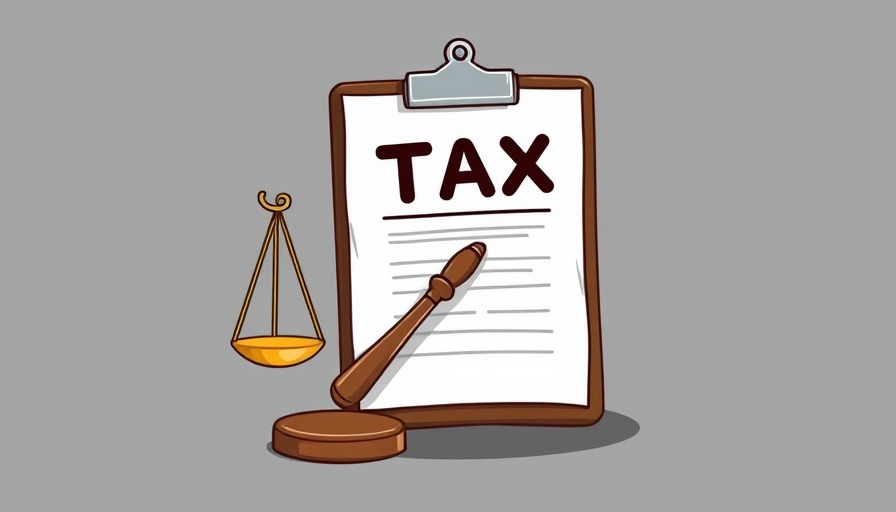
Understanding the One Big Beautiful Bill: Tax Implications Ahead
The recent passage of the House's "One Big Beautiful Bill" has raised numerous questions among taxpayers, investors, and financial professionals alike. With significant changes proposed to existing tax laws, it’s essential to dissect the impact this legislation could have on various sectors. This analysis aims to illuminate key aspects of the bill, providing actionable insights for those watching closely.
A Closer Look at the Legislative Process
As the bill moves from the House to the Senate, the political dynamics are complex. The narrow 215-214 vote showcases deep divisions within Congress, reflecting differing priorities and ideologies. Some Republican senators are expressing concerns about the Medicaid cuts and the bill’s potentially substantial impact on the federal deficit, which is projected to rise by $2.8 trillion over the next decade. The urgency is palpable, as they aim for a bill to reach President Trump by the Fourth of July—a timeline that remains optimistic given the thorough deliberations expected in the Senate.
Financial Ramifications for Municipal Bonds
One immediate area of concern for investors is the treatment of municipal bonds under the new legislation. Fortunately, as per recent communications from the tax experts, there are no plans to make interest on these bonds taxable. This preservation of tax-exempt status is crucial, as municipalities rely heavily on these financial instruments to fund essential infrastructure projects. With state and local governments facing mounting expenses, the ongoing exemption offers stability for both investors and public entities.
Impact on Social Security and Retirement Benefits
The intersection of tax policy and social welfare is another pressing issue. Retired federal employees, particularly those under the Civil Service Retirement System (CSRS), are inquiring whether they will benefit from the proposed $4,000 bonus deduction. Importantly, it’s crucial for this demographic to stay informed about potential deductions that may alleviate financial pressures, especially in the current economic climate.
Real-Life Implications: Who Benefits?
As we dissect these complex financial proposals, the focus shifts to who will ultimately benefit from the One Big Beautiful Bill. Immediate deductions and extended tax breaks appear attractive at first glance, particularly for families and small businesses. However, understanding who qualifies for these breaks is essential for accurate financial planning. Importantly, those who do not currently pay Social Security taxes, such as certain federal retirees, could find themselves excluded from some of the proposed benefits.
Broader Economic Trends to Monitor
The passage of this bill signals broader economic trends that warrant attention. As government spending and tax policy continue to evolve, business leaders and investors must brace for shifts in market dynamics. The healthcare sector may face disruption due to proposed Medicaid cuts, and energy companies are anticipating backlash over potential cuts to clean-energy credits, which could hinder their investment strategies moving forward.
Final Thoughts: Navigating the Complex Landscape Ahead
In conclusion, while the "One Big Beautiful Bill" proposes enticing tax revisions, the real impact will depend on negotiations and revisions in the Senate. Investors, public servants, and taxpayers should stay informed, considering how these decisions could affect their financial futures. Understanding the intricate connections between legislation and fiscal outcomes will allow stakeholders to navigate this evolving landscape effectively. As the discussions unfold, proactive financial planning will be crucial for adapting to the new realities of the upcoming tax landscape.
 Add Row
Add Row  Add
Add 




 Add Row
Add Row  Add
Add 








Write A Comment